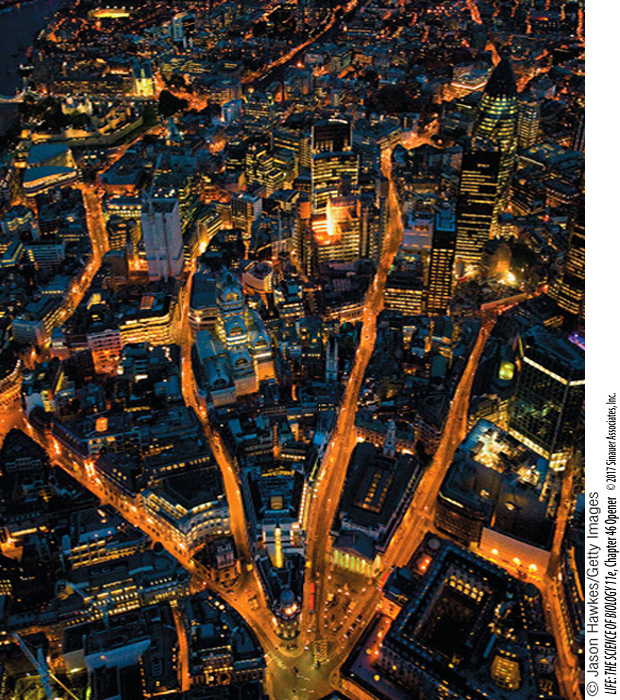Chapter Introduction
The Mammalian
Nervous System:
Structure and
Higher Functions

investigating life
The Brains of Taxi Drivers
Compare Google maps of London and New York City at the same scale. In which city do you think it is easier to drive a taxi? Eleanor Maguire at University College London was so impressed with the navigational abilities of London taxi drivers that she investigated whether there was anything “special” about their brains. Using magnetic resonance imaging, Maguire and her colleagues examined the brains of taxi drivers with varying numbers of years of experience and compared them with each other and with the brains of control subjects who were not taxi drivers. The studies revealed significant differences in the sizes of a brain region called the hippocampus.
The hippocampus is involved in learning and memory. The posterior hippocampus in particular is implicated in the memory of spatial relationships among objects in the environment. Maguire found that the posterior hippocampi of taxi drivers were larger than those of control subjects and that, among the cab drivers themselves, there was a positive correlation between the size of the posterior hippocampus and years of driving experience.
In Matt Wilson’s lab at the Massachusetts Institute of Technology, researchers record the activity of hippocampal neurons of rats running in a maze. Specific neurons called “place cells” fire action potentials only when the rat is at a particular location in the maze. Thus when the rat runs the maze from beginning to end, a sequence of cell firing is recorded. Sometimes when the rat is resting, the same sequence is recorded but is speeded up about 20 times, or the reverse sequence is recorded. It seems as if the recordings are reflecting what the resting rat is thinking—
The hippocampus is important for acquiring memories and consolidating them into long-
Can recordings of place cells reveal processes of memory consolidation during sleep?